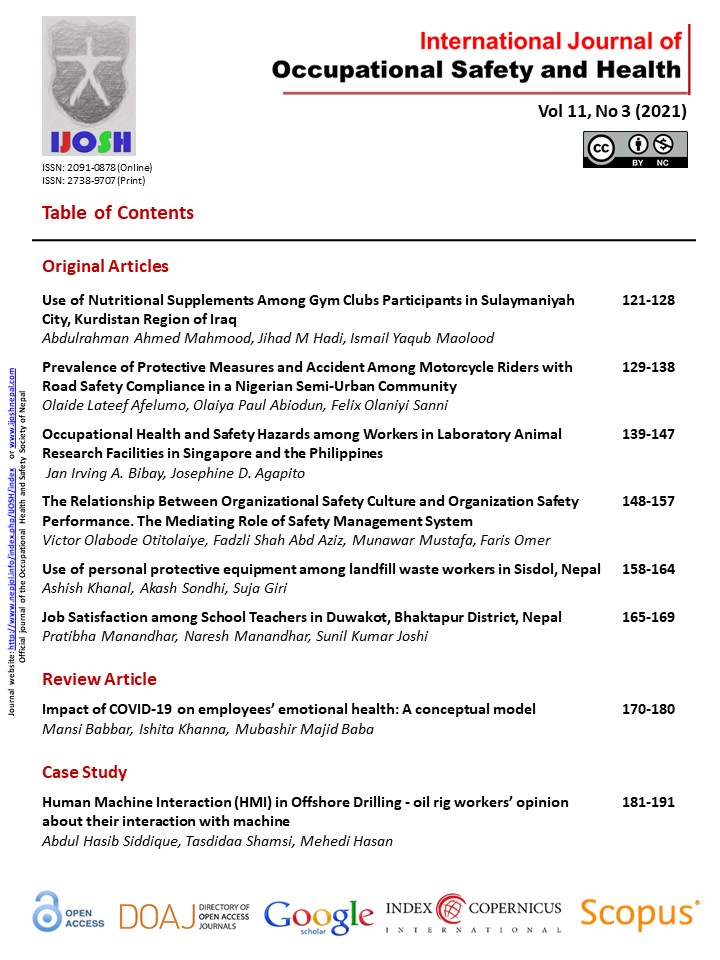Prevalence of Protective Measures and Accident Among Motorcycle Riders with Road Safety Compliance in a Nigerian Semi-Urban Community
DOI:
https://doi.org/10.3126/ijosh.v11i3.39764Keywords:
Accident implication, compliance, motorcycle, prevalence, safety measuresAbstract
Introduction: The operation of commercial motorcycles has eased transport difficulties, but an increased rate of road traffic collisions, injuries, and deaths deserve attention. This study aimed to evaluate compliance with road safety preventive measures and accident prevalence among motorcycle riders in Ado-Odo Ota, Ogun State, Nigeria.
Methods: This study was a descriptive cross-sectional survey that employed a structured questionnaire for collecting information related to compliance to protective measures and accident prevalence. A stratified random sampling technique was used to identify respondents from 20 motorcycle parks. Also, a multistage probability sampling method was used to select 374 respondents from all motorcycle parks listed. Data analysis was done using IBM-SPSS version 25.0
Results: Of the 374 respondents, 69.0% owned motorcycles and 31.0% hired/rented theirs. Less than half (45.7%) of all riders were aware of the implications (health, financial, and psychological) of a motorcycle accident (MCA). Only 39.5% of owners and 59.5% rented/hire knew the implications (p<0.001). Helmet use was significantly higher among owners (76.4%) than hired/rented (55.2%), p<0.001. More owners (70.9%) had protective jackets than rented/hired (57.8%) (p<0.05). Availability of bright/reflective clothing was poor (45.7%) though significantly higher among owners (50.0%) than rented/hired (36.2%) (p<0.05). Overall accident prevalence was 45.2%, significantly higher among rented/hired riders (56.0%) than owners (40.3%) (p<0.005). Respondents aged 18-24 years were more involved in MCA (52.9%) than the other age groups (p<0.05). Respondents with no formal education had more accidents (73.1%) than the educated (p<0.001).
Conclusion: The knowledge of the consequences of motorcycle accidents was limited among motorcycle riders in Ado-Odo, and the prevalence of accidents was significantly higher among riders who rented/hired motorcycles than owners. Therefore, there is a need for accident documentation and cost implication of motorcycle accidents in the local government areas; this will help policymakers design intervention programs. Also, there is a need for regular training of the riders on road safety measures and the associated benefits.
Downloads
Downloads
Published
How to Cite
Issue
Section
License
Copyright (c) 2021 OL Afelumo, OP Abiodun, FO Sanni

This work is licensed under a Creative Commons Attribution-NonCommercial 4.0 International License.
This license enables reusers to distribute, remix, adapt, and build upon the material in any medium or format for noncommercial purposes only, and only so long as attribution is given to the creator.





